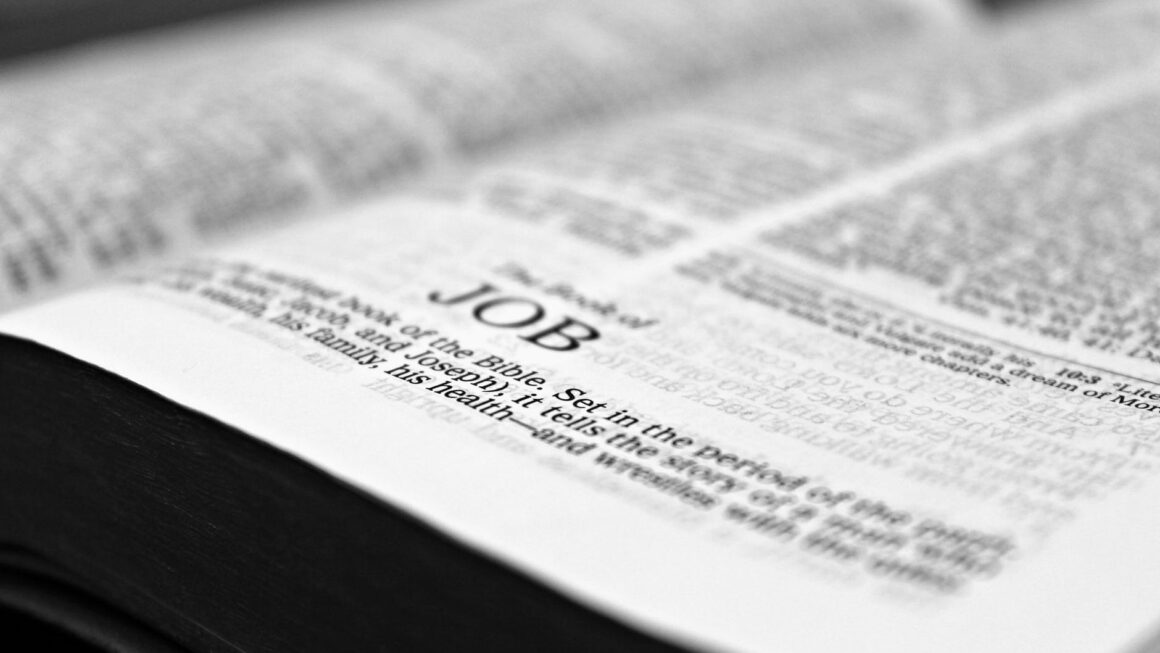Spectrum Magazine asked me to review Reinder Bruinsma’s latest book Facing Doubt: A Book for Adventist Believers On the Margins. As I was reading and thinking about Bruinsma’s book, I decided that some of my musings would be worth a blog post.
I really feel that Bruinsma has done an admirable job with this book. That said, I don’t really feel like I am the audience for this book, though I couldn’t at first put my finger on why. After a while, I figured out what was at the core of my issues. As I wrote in the review:
My only true problem with the book, is one that is not Bruinsma’s fault at all. As I read the book, I didn’t feel that I was the audience. Not because I lack doubt, not because I haven’t thought of leaving the church, but because my worldview and thus my reason for doubts are different. Ultimately, I would estimate that this book answers more questions for Baby Boomer and Generation X readers, than for younger ones.
Ultimately, my issues with Bruinsma’s book are because what I see as the problems with the church don’t seem to be the ones Bruinsma points out. Allow me to muse a bit about why Bruinsma’s doubts are the doubts of a Baby Boomer (which Bruinsma is) or of Generation X. Not, and let this be very clear, not as a critique of Bruinsma’s book, but as an addition to the discussion.
Theodicy
My musings start quite close to the beginning, Bruinsma’s first real personal example of why to doubt God, talks about loss, sickness, and death. By all means, these are universal issues, and they are hard to deal with. Bruinsma associates these terrible things with a questioning of God’s goodness: if God is good, why does he allow death, war, etc. In short, without good theodicy we will doubt. Now I’ve thought about this, and I can honestly say this is not a reason why I would ever leave the church or the faith, yet it plays a large role in Bruinsma’s book.
To be clear, Bruinsma is not making up this argument. Theodicy is a huge point of discussion in the contemporary atheist debate. A debate that includes some other issues, that Bruinsma discusses in sufficient detail as well, such as epistemology and empiricism. All of these issues suddenly became very popular in what is called ‘New Atheism’, as championed by the likes of Richard Dawkins. Dawkins famously writes:
The God of the Old Testament is arguably the most unpleasant character in all of fiction: jealous and proud of it; a petty, unjust, unforgiving control-freak; a vindictive, bloodthirsty ethnic cleanser; a misogynistic, homophobic, racist, infanticidal, genocidal, filicidal, pestilential, megalomaniacal, sadomasochistic, capriciously malevolent bully. (Richard Dawkins, The God Delusion (New York: Houghton Mifflin, 2006), 31.)
It should be quite evident that Dawkins has quite the beef with God. What is most strange is that New Atheism raised its head rather suddenly in the early 2000s. In 2008 Dueck wrote, quite hilariously:
Those who puzzle at the phenomenon that is the ‘new atheism’ — whether religious or irreligious — could be forgiven for wondering what new cosmological data or insight into human nature suddenly became available around the mid-point of the twenty-first century’s first decade to instantly render belief in the supernatural remarkably less credible than in the millennia that preceded it. After all, it is not as though human beings just stumbled groggily out of a long epistemological hibernation to discover now, at the dawn of the twenty-first century, that God is not an empirical piece of data in the observable world, or that those who claim to bear his name do not always live according to the professed ideals and ethics of their religious traditions.
In this world, so heavily and irretrievably influenced by postmodernism, we seem to have stumbled onto a modernist debate: does God exist or not, and if God is meant to be ontologically good, how can he allow evil? A debate that has been instigated by people who are now, generally, in their seventies. A debate that seems to rage between fundamentalists on both sides: religious fundamentalists and scientific fundamentalists. Now, this debate is uninteresting for me, and I imagine for many like me, for two and a half very simple reasons: (½) I am not a fundamentalist, (1) I am not interested in any proof for or against God because that does not influence my faith in a direct way, and (2) what postmodernity has been telling us for decades is that the only thing worse than religious wars are scientific/modern ones. The scientific rationalism that the new atheists are arguing for did not deliver us from the evils of violence, war, and hatred – it just made us more efficient at violence, war and hatred: the Great War, the Holocaust, Hiroshima.
In other words, the questions that Bruinsma (rightfully) asks like ‘Why did God allow this?’ and ‘Why, God, why?’ (p 64) are not my questions and for me do not lead to doubt. For me, the problem of evil in the world is not a religious problem, it’s a human problem. Atheists need theodicy as well, they too need to explain the evil in this world. They generally simply blame chaos, so why can’t Christians?
Theodicy in my generation
Theodicy is an issue for my generation, but not for the reasons Bruinsma names. We need theodicy because we desperately need God to be good. Otherwise, we are in big trouble. Because the real question, which I believe younger generations are struggling with is not ‘Why, God?’ but ‘Why God?’. Trying to understand why God allows evil is not as important as trying to understand why God is worth believing in, never mind if he exists or not. Time is scarce. Time is the only truly non-renewable resource. We are aware of this, and we are aware that we can only invest it in a certain amount of things, so they better be worth it. Why is God worth my time? What makes God immediately worthwhile, not only for me but for everyone around me? God needs to be good, otherwise God is a waste of my time. That is why theodicy is important.
Young people, the younger generations, are dreamers. They are driven by an informed naivety. Not only can they change the world, they will change the world (even if they don’t). And they will do it soon. If they choose God, it better be immediately apparent how that is changing the world. Otherwise, there is Unicef, the Red Cross, or environmental start-ups. This leads us to the next musing that I had but it needs some introducing. For now, remember ‘I can change the world!’.
The church’s teachings
Another reason that Bruinsma discusses for doubting not God but the church is the church’s teachings and decisions. He lists many, both very current and a bit more stale: women’s ordination, 1844, the sanctuary, plain reading, creation, the nature of Jesus, Ellen White, homosexuality. What is at stake is the question of whether you can associate yourself with a church has teachings that you disagree with. Many who, for example, cannot see Jesus moving from one room to another in heaven in 1844, might want to leave the church. Maybe because they feel unaccepted because of their variant thinking, maybe because they feel dishonest to support a church that they disagree with.
Leaving any of my own opinions aside, many of the topics Bruinsma raises would have been ones I would give in a similar list. They are the hot topics. Many of these are the same issues that younger people around the world are raising, and so famously raised on Twitter at the General Conference in San Antonio. But, and I imagine many think this might be strange, the reason is not the one that Bruinsma gives. The reason is not because young people cannot support a church that teaches things they would not necessarily agree with. It is because of the nature of a church. Let me try to explain.
The glocal church
The church as a worldwide body cannot be separated from the local church. Generation X (±1960–1980) has always been happy to find a little bit of paradise, like a local church, and thrive there. Millennials and Generation Z cannot and will not think like that. Global is local. There is only the glocal church. This is one part of the problem: we cannot hide.
The other part is that a church should be a force for good. It really should. It should bring peace, joy, love, harmony to the world. If it does not do that, is it still a church? Can a church call itself a church if it does not embody the kingdom of God? Younger generations would not see any possibility in this. This is the crux of the problem, and why some topics are so important for younger people and others are not. 1844, is fine. let the theologians argue what exactly happened. I can’t see anyone under thirty-five lying awake at night about that. Gay rights, big problem. For a young person, even if she personally does not see a biblical place for homosexuality, she cannot accept a church that engenders hate. Because then, no matter what, the church stops being a church.
This same argument is at the basis of the irritation with topics such as the changed Fundamentals. It is not a disagreement with the conclusions drawn, it is not a problem with having to believe in a worldwide flood (even if you voted against that change at the GC). The Fundamentals are fine. The problem is an Adventist church that forces its members to believe something is no longer Adventist. Our church was founded by people fleeing doctrinal oppression, and lo and behold, slowly we ourselves seem to be becoming a force of doctrinal oppression. Now, I must admit that Bruinsma does discuss this dogmatising trend in the church.
#MyChurchToo, don’t ruin it
At the GC millennials and GenYs were crying #MyChurchToo, while self-identifying as #badventists. The #MyChurchToo hashtag was started by women who felt disenfranchised by the women’s ordination debate, but morphed into a powerful battle cry for the new generation, who do not, will not, cannot fit the perfect Adventist mould of the twenty-eight. ‘It is our church too and you people have to stop ruining it’, they cried, ‘You have to stop turning it into a non-church, an anti-church. Because, and this is very important so please pay attention, if the GC is evil, my local church is also evil. And then where will I go? How will I change the world? I’ve invested too much time in my church for it to become meaningless now. It’s #MyChurchToo.’
So if you ask me why I’d leave the church, it’s simple: because the church would no longer be worth me and my time. Because my skills, my talents, my power to change the world would be wasted. I am definitely not there, but I have seen many leave for that reason. I have spoken to many young pastors who are planning exit strategies from ministry for this reason. I increasingly hear from peers that they cannot be bothered with a ‘misogynistic’ church (i.e. one that does not ordain women). They can’t be bothered with an autocratic church (i.e. one that won’t give Unions autonomy). They can’t be bothered with a hate-engendering church (i.e. one that won’t allow gay people to be members). They can’t be bothered with a racist church (i.e. one that claps when the GC secretary announces a decline in membership in the global north). They can’t be bothered with a church that is a church in name only.
The problem is not doubt, it’s disillusionment. Dreamers need to dream. Can we still dream in the Adventist Church? I, at least, would like to try.


